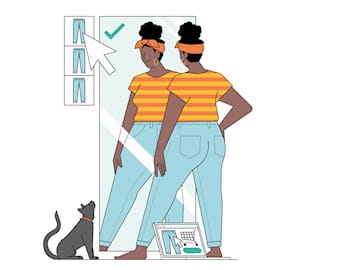Last spring, with the COVID-19 pandemic underway, entrepreneurs building some of the world’s most innovative companies were forced to hit the brakes. Many paused to conduct a triage of sorts, evaluating the pandemic’s potential impact on their business before calculating their next move.
With the economy stalling, some company founders felt the need to rethink their playbook in a big way. Others took a brief hiatus, but decided to stay the course, while also sharpening technology offerings to appeal to customers who were stuck at home.
As 2021 begins, there’s less uncertainty in the new venture space, with many venture capitalists feeling especially optimistic, said Booth professor Steve Kaplan. The Neubauer Family Distinguished Service Professor of Entrepreneurship and Finance and the Kessenich E. P. Faculty Director at the Polsky Center for Entrepreneurship and Innovation, Kaplan has witnessed an increasing number of alumni and current students adjusting to the pandemic climate and learning to use it to their collective advantage.
“Any time there is a lot of turbulence, it leads to entrepreneurship opportunities,” he said.
One area of opportunity: emerging technology. Many new ventures were forced to prioritize new digital offerings, thereby accelerating transformation in the area across a host of industries, said Kaplan. “COVID-19 has made everybody more digital,” he said. “The tech companies have found success through this.”
The VC industry—critical to entrepreneurial efforts—has also fared relatively well so far through the pandemic, added Kaplan. Kaplan was one of four researchers who sought answers from more than 1,000 venture capitalists about how their businesses were affected by the pandemic. According to the findings outlined in a September working paper, 52 percent reported being unaffected or positively affected by the pandemic. Another 38 percent were somewhat negatively affected, with only 10 percent reporting that they were severely hurt by the pandemic. Venture capitalists plan to invest at 81 percent of their normal pace in the coming year, according to the data.
For entrepreneurs still fine-tuning their game plan, Kaplan has some advice: “Be flexible and use the data that’s coming in to make sure you can react quickly.”
Meet three company founders who are taking this advice to heart and redefining their businesses in a postpandemic world.






